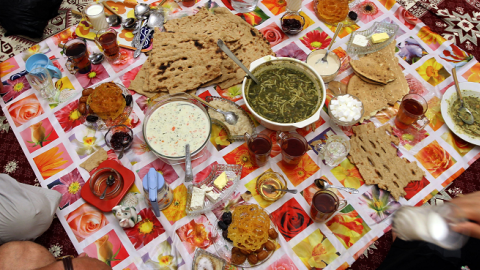During the month-long holiday of Ramadan, Muslims break their fast every evening with the iftar meal. For a number of years, the White House and some US embassies have been hosting an annual iftar dinner. While this is a positive initiative, the good intentions behind it are marred by the tendency to invite extremists and to pass over moderate Muslims in order to send a message of inclusiveness.
The Danish Example
In 2006, James Cain, US ambassador to Denmark, invited to the embassy’s iftar dinner Safia Aoude, an Islamist whose website linked to a site affiliated with Holocaust-denier David Irving. In 2007 and 2009, the US embassy in Denmark invited controversial imam Mohammed Fouad Albarazi, who was one of the imams travelling to the Middle East fuelling the hatred towards Denmark during the Muhammed cartoon affair. Although I founded an organization called Democratic Muslims shortly after the cartoon crisis, thus far, no one from this much more moderate group has been invited.
Both Aoude and Albarazi hold rather extreme Islamic beliefs that contradict everything America stands for, including supporting various jihadist groups – yet they are still invited to US territory and pose for photos with US ambassadors. Not only is this slightly ironic; more importantly, it sends the wrong message. What should be a dinner for building bridges with prominent Muslims becomes a stamp of approval for extremists.
A White House Tradition Steeped in Controversy
In 1996, First Lady Hillary Clinton began the tradition of hosting the White House iftar dinner. Over the years, the dinners have been quite controversial among Muslim organizations, with many debating whether to accept their invitations or decline in protest.
This year’s iftar, hosted by President Obama, was no exception. In fact, the debates and protests were even more intense, primarily because of the escalation of the Israeli-Palestinian conflict and the feeling among many American Muslims that the United States and President Obama were partly to blame for Israel’s airstrikes against Hamas.
Moreover, several days before the dinner, a report published online asserted that the NSA and FBI had been carrying out surveillance of prominent Muslim Americans, including Nihad Awas of CAIR (The Council on American-Islamic Relations) and Dr. Agha Saeed of the American Muslim Alliance. This led some Muslims to boycott the White House iftar.
Adding further fuel to the controversy was the invitation extended to Israel’s ambassador, Ron Dermer, which many Muslims saw as provocative and as an attempt to make the crisis in Gaza about religion, when, in their view, it is solely political. Furthermore, during the dinner, the ambassador live-tweeted that he “appreciated the strong statement made by Obama regarding Israel’s right to defend itself.” After Obama’s statement, some guests refused to applaud.
Distinguishing between moderate Muslims and extremists is essential
Recently, Obama spoke at UN headquarters on the conflict with the Islamic State (IS). While he gave the impression that he is strongly committed to eliminating the group, his speech showed he might need a lesson in history. He praised Sheikh Abdallah Bin Bayyah as “a man of peace” and someone with whom the United States should cooperate in the fight against IS. Yet it is a fact that in 2004, Sheikh Bayyah supported an Islamic ruling, a fatwa, which stated its encouragement of Muslims to kill US soldiers. Furthermore, among Muslims, Sheikh Bayyah is considered to be a spiritual leader of the Muslim Brotherhood. Is this really the type of person with whom Obama and the United States should be cooperating? The president’s praise for Bayyah is reminiscent of his invitations to the White House iftar dinners: He fails to distinguish between truly moderate Muslims and extremists.
The iftar dinners at both the White House and specific US embassies have been criticized for being political, rather than implementing the initial idea of building bridges. The absence of moderate Muslims defeats the purpose of the dinners. Furthermore, those who attended Obama’s recent iftar reported that he left quickly after dinner and was not available to speak to the guests. This is perhaps another example of how these iftar dinners, themselves an excellent idea, have taken a wrong turn.



















